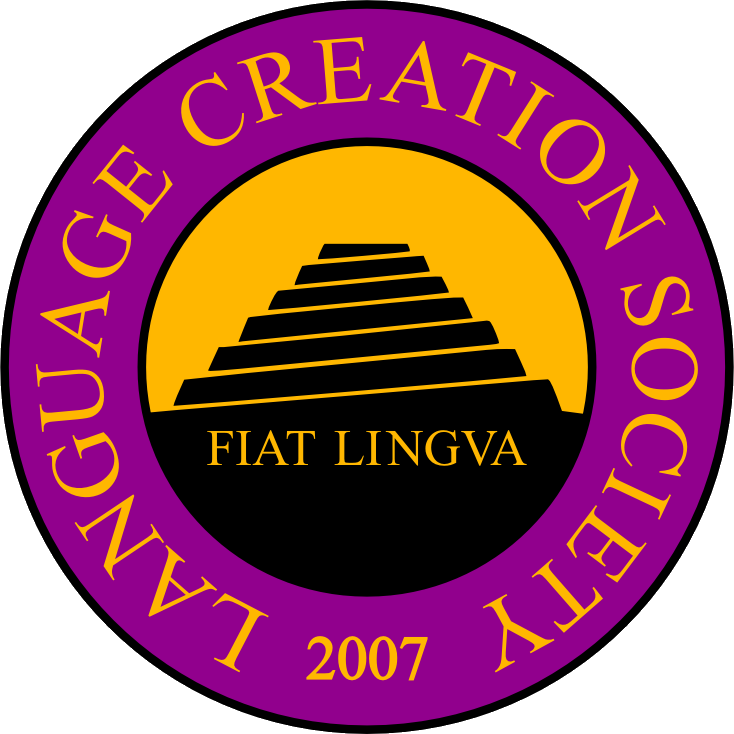The Second Language Creation Conference
The 2nd Language Creation Conference took place on the weekend of July 7-8, 2007, in Berkeley, California, USA. The conference was hosted by the Language Creation Society under the local direction of Alex Fink and Sai.
About the LCC
The Conference is a set of talks and panel discussions about various issues related to language creation, from several different perspectives. It includes both fairly academic linguistic discussions as well as more general sociological ones; voices from many parts of the conlanging community; and people from all over America. The conference is open to the public; preregistration requested. Lunch and snacks will be provided.
UC Berkeley – 150 University Hall – 7-8 July 2007 8am-6pm
Tickets $35 as able (no one refused for lack of funds)
Sponsored by ASUC & Language Creation Society. Wheelchair accessible.
What Is Language Creation?
Language creation (or “conlanging”—”conlang” is short for “constructed language”) is the process of inventing and (usually) describing a new language. Though the extent to which a language is created varies, creators might include sound systems, grammars, and writing systems for their languages. Some creators are also interested in cosmogenesis: the creation of cultures and worlds in which their languages are used.
Conference Program
Ever wondered to what extent the languages of Tolkien’s Lord of the Rings series are languages? Or whether the unbreakable linguistic universals that are claimed to underlie all languages are truly unbreakable? Or perhaps how to say, “Where’s the restroom” in Klingon? If so, or if you’re a fan of language in any form, come check out the Second Language Creation Conference July 7-8 at UC Berkeley!
On the agenda are several in-depth talks ranging in subject matter from language games, to the problematic nature of the success of a created language—including a keynote address by David Salo, the linguist in charge of bringing Tolkien’s languages to the screen in the recent Lord of the Rings film trilogy. In attendance will be language creators from all over the country—some who have been working lovingly on their creations for forty or more years, and others who continually try to push the boundaries of what a language can do, rather than being satisfied with what naturally evolved languages currently do. Come to chat about languages (created or natural), hear some great talks, participate in several panel discussions and workshops, and take in the atmosphere of downtown Berkeley in summer.
What’s the Point?
People create constructed languages for a number of reasons. Artistic languages are often included in fictional works: for example, Tolkien’s Quenya in The Lord of the Rings or Klingon in Star Trek. International auxiliary languages (auxlangs) are intended for communication between people of different native languages, usually to prevent one being elevated over others or to making learning easier; some famous examples are Esperanto, Ido, and Interlingua. Logical and philosophical languages are used to test linguistic (and other) theories; Loglan and Lojban are well-known examples of the former, and Suzette Haden Elgin’s Láadan is an example of the latter — which she incorporated into the Native Tongue series of novels.
Sponsors
UC Berkeley Group Major for Cognitive Science
![]()
![]()
Code of Conduct
The LCS expects all attendees to abide by the LCC Code of Conduct.
